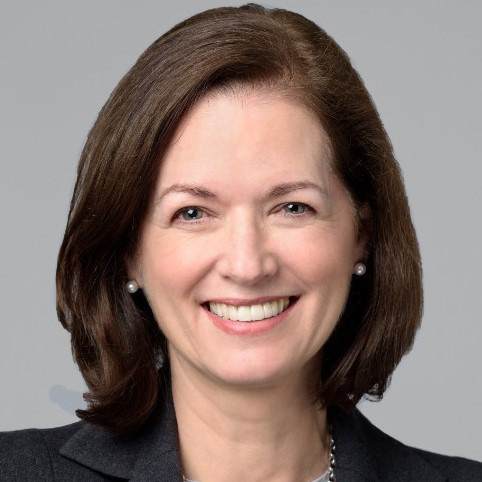What We Need to Do to Protect Retirees' Financial Security
Cognitive decline and aging in general put older retirees at risk of losing their financial security when they're the most vulnerable. What can be done?


Profit and prosper with the best of Kiplinger's advice on investing, taxes, retirement, personal finance and much more. Delivered daily. Enter your email in the box and click Sign Me Up.
You are now subscribed
Your newsletter sign-up was successful
Want to add more newsletters?

Delivered daily
Kiplinger Today
Profit and prosper with the best of Kiplinger's advice on investing, taxes, retirement, personal finance and much more delivered daily. Smart money moves start here.

Sent five days a week
Kiplinger A Step Ahead
Get practical help to make better financial decisions in your everyday life, from spending to savings on top deals.

Delivered daily
Kiplinger Closing Bell
Get today's biggest financial and investing headlines delivered to your inbox every day the U.S. stock market is open.

Sent twice a week
Kiplinger Adviser Intel
Financial pros across the country share best practices and fresh tactics to preserve and grow your wealth.

Delivered weekly
Kiplinger Tax Tips
Trim your federal and state tax bills with practical tax-planning and tax-cutting strategies.

Sent twice a week
Kiplinger Retirement Tips
Your twice-a-week guide to planning and enjoying a financially secure and richly rewarding retirement

Sent bimonthly.
Kiplinger Adviser Angle
Insights for advisers, wealth managers and other financial professionals.

Sent twice a week
Kiplinger Investing Weekly
Your twice-a-week roundup of promising stocks, funds, companies and industries you should consider, ones you should avoid, and why.

Sent weekly for six weeks
Kiplinger Invest for Retirement
Your step-by-step six-part series on how to invest for retirement, from devising a successful strategy to exactly which investments to choose.
As Americans live longer, the challenge of safeguarding the financial well-being of older and vulnerable populations — particularly those facing cognitive decline — has grown more urgent.
For retirees who have spent decades contributing to pension plans or hoping to manage their financial futures via 401(k) plans, the golden years should provide peace of mind. However, without proper protections in place, some of these people may be at risk of losing their financial security at the most vulnerable stage of life.
As the recently published Mercer CFA Institute Global Pension Index highlights, the financial landscape facing retirees is increasingly complex. A shift from defined benefit (DB) to defined contribution (DC) pension plans has placed greater responsibility on individuals to make key decisions about contributions, investments and income strategies. Cognitive decline can become a critical factor in later years, making it nearly impossible for many older individuals to continue making sound financial decisions on their own. Policymakers and the financial services profession must take meaningful steps to address this growing issue.
From just $107.88 $24.99 for Kiplinger Personal Finance
Become a smarter, better informed investor. Subscribe from just $107.88 $24.99, plus get up to 4 Special Issues

Sign up for Kiplinger’s Free Newsletters
Profit and prosper with the best of expert advice on investing, taxes, retirement, personal finance and more - straight to your e-mail.
Profit and prosper with the best of expert advice - straight to your e-mail.
Research by Rand highlighted that cognitive abilities decline significantly with age, making it unreasonable to expect individuals in their 80s and 90s to continue making complex financial decisions. Yet many DC plans still require retirees to make decisions about their portfolios, even in advanced age. This creates a significant risk of financial mismanagement, fraud and exploitation, particularly for those experiencing cognitive decline.
A need for flexibility in early years of retirement
To mitigate these risks, policy must shift toward offering retirees more stable and predictable income solutions as they age. National actuarial bodies have suggested that pension systems develop products that provide flexibility in the early years of retirement, while transitioning to more structured lifetime income payments in later years providing income security while offsetting sequence of returns risk. This would help ensure that retirees do not outlive their savings, while protecting them from the potential dangers of making complex financial decisions as their cognitive abilities wane — or simply running out of money.
The role of financial advisers in safeguarding the interests of older and vulnerable populations remains crucial. Yet, in the U.S., the regulatory framework for financial advice is fragmented. Advisers can serve clients as fiduciaries in one capacity and as best-interest brokers in another, creating confusion for clients and compromising the quality of advice. This dual standard would benefit from reform.
Policymakers should implement clearer guidelines that require financial advisers to act in their clients' best interests at all times — particularly when working with older or vulnerable clients.
The financial advice sector could also do more to raise the bar in terms of both technical and behavioral competency. Advisers need the skills to navigate complex retirement planning scenarios and the empathy to understand the unique challenges their older clients face, especially those with cognitive decline.
Here are five recommendations for policymakers and the financial advice sector:
1. Develop default income solutions
Policymakers and product providers should consider developing plans that offer default income streams that transition to stable, lifetime payments in later years. These products would minimize the need for ongoing decision-making, reducing the risk of financial mismanagement due to cognitive decline.
2. Strengthen fiduciary standards
Financial advisers should be held to a single, unified fiduciary standard, ensuring that they always act in their clients' best interests. This is particularly important for vulnerable clients who may not be able to discern between different standards of care.
3. Enhance adviser competency
Financial advisers need to have both the technical expertise and the behavioral skills to serve older clients effectively. The complexity of managing retirement assets requires sophisticated thinking across tax, investment and legal domains, coupled with a deep understanding of the behavioral challenges and diverse retirement scenarios faced by older clients.
4. Leverage AI and digital tools
The financial advice profession should embrace AI (artificial intelligence) and other digital tools to support routine financial management tasks, while allowing human advisers to focus on complex, high-value services. This hybrid model would improve efficiency and elevate the overall quality of advice.
5. Promote diversity in financial services
The financial advice industry must prioritize diversity in talent acquisition to better reflect the client base and improve decision-making outcomes. A more diverse workforce would ensure that the financial services sector is better equipped to meet the needs of all clients, including those from underserved communities.
As the percentage of the retirement-aged population continues to grow, and the need for retirement security becomes more pressing, the financial advice sector and policymakers must collaborate to create a safer, more supportive environment for older and vulnerable individuals. By implementing these recommendations, we can protect the financial futures of millions of retirees and ensure they live out their later years with dignity and security.
Related Content
- How to Guard Your Finances in Case Cognitive Decline Sets In
- Is Your Estate Ready if You Experience Cognitive Decline?
- Three Ways to Help Create Financial Stability for a Widow
- How Young People Can Own Their Financial Future Authentically
- Investment Gamification: Not All Cons, Some Important Pros
Profit and prosper with the best of Kiplinger's advice on investing, taxes, retirement, personal finance and much more. Delivered daily. Enter your email in the box and click Sign Me Up.

Marg Franklin leads CFA Institute and its more than 190,000 members worldwide in promoting the highest standards of education, ethics, and professional excellence in the investment profession. Franklin has built her career over the course of more than 25 years in the investment and wealth management industries, in both institutional and private wealth. She is a CFA charterholder and a member of CFA Society Toronto.
-
 5 Vince Lombardi Quotes Retirees Should Live By
5 Vince Lombardi Quotes Retirees Should Live ByThe iconic football coach's philosophy can help retirees win at the game of life.
-
 The $200,000 Olympic 'Pension' is a Retirement Game-Changer for Team USA
The $200,000 Olympic 'Pension' is a Retirement Game-Changer for Team USAThe donation by financier Ross Stevens is meant to be a "retirement program" for Team USA Olympic and Paralympic athletes.
-
 10 Cheapest Places to Live in Colorado
10 Cheapest Places to Live in ColoradoProperty Tax Looking for a cozy cabin near the slopes? These Colorado counties combine reasonable house prices with the state's lowest property tax bills.
-
 5 Vince Lombardi Quotes Retirees Should Live By
5 Vince Lombardi Quotes Retirees Should Live ByThe iconic football coach's philosophy can help retirees win at the game of life.
-
 The $200,000 Olympic 'Pension' is a Retirement Game-Changer for Team USA
The $200,000 Olympic 'Pension' is a Retirement Game-Changer for Team USAThe donation by financier Ross Stevens is meant to be a "retirement program" for Team USA Olympic and Paralympic athletes.
-
 How to Turn Your 401(k) Into A Real Estate Empire — Without Killing Your Retirement
How to Turn Your 401(k) Into A Real Estate Empire — Without Killing Your RetirementTapping your 401(k) to purchase investment properties is risky, but it could deliver valuable rental income in your golden years.
-
 Don't Bury Your Kids in Taxes: How to Position Your Investments to Help Create More Wealth for Them
Don't Bury Your Kids in Taxes: How to Position Your Investments to Help Create More Wealth for ThemTo minimize your heirs' tax burden, focus on aligning your investment account types and assets with your estate plan, and pay attention to the impact of RMDs.
-
 Are You 'Too Old' to Benefit From an Annuity?
Are You 'Too Old' to Benefit From an Annuity?Probably not, even if you're in your 70s or 80s, but it depends on your circumstances and the kind of annuity you're considering.
-
 In Your 50s and Seeing Retirement in the Distance? What You Do Now Can Make a Significant Impact
In Your 50s and Seeing Retirement in the Distance? What You Do Now Can Make a Significant ImpactThis is the perfect time to assess whether your retirement planning is on track and determine what steps you need to take if it's not.
-
 Your Retirement Isn't Set in Stone, But It Can Be a Work of Art
Your Retirement Isn't Set in Stone, But It Can Be a Work of ArtSetting and forgetting your retirement plan will make it hard to cope with life's challenges. Instead, consider redrawing and refining your plan as you go.
-
 The Bear Market Protocol: 3 Strategies to Consider in a Down Market
The Bear Market Protocol: 3 Strategies to Consider in a Down MarketThe Bear Market Protocol: 3 Strategies for a Down Market From buying the dip to strategic Roth conversions, there are several ways to use a bear market to your advantage — once you get over the fear factor.